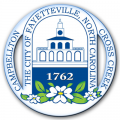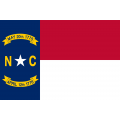For our 2024 rankings, the research team at Nursing Schools Almanac collected data on nearly 3,000 nursing schools and campuses throughout the United States. We evaluated each school on three dimensions:
North Carolina
We've organized a comprehensive list of North Carolina nursing schools. Below you'll find information on specific nursing programs such as LPN diplomas and ADN, BSN, and MSN degrees. You'll also find a profile of nursing education and careers in each major North Carolina city.
North Carolina school overviews
North Carolina nursing programs and careers
City-specific information
Many of Fayetteville’s major healthcare providers, such as PruittHealth and Amedisys, are looking to employ new nurses. The area has four primary nursing roles, each of which requires a particular set of skills and qualifications. Fayetteville’s prospective nurses should learn more about the area’s work and education opportunities.
Advanced practice registered nurse (APRN)
The Durham / Chapel Hill area of North Carolina is home to over 13,000 nursing professionals. Aspiring nurses can pursue several distinct nursing roles, each of which carries unique qualification requirements.
Certified nursing assistant (CNA)
A number of community colleges offer certificate programs which allow students to qualify as certified nursing assistants. These courses are cost-effective and time-efficient, typically requiring only a few months to complete. Hence, many students begin their nursing careers by qualifying as CNAs.
North Carolina’s nurses typically fall into one of three major nursing roles. Each role requires a different education pathway to achieve qualification, and each role carries unique duties. In addition, compensation varies greatly by nursing role.
Certified nursing assistant
A master of science in nursing (MSN) program enables registered nurses who already hold a bachelor’s degree to pursue graduate study. An MSN program qualifies its graduates to work as advanced practice registered nurse (APRNs) in specialized roles like nurse practitioner, nurse midwife, and nurse anesthetist.
APRN specializations
Many aspiring nurses keep a close eye on the cost of attending nursing school. The all-in cost of enrollment is comprised of several distinct components, which we profile below.
Tuition
Public colleges and universities receive subsidies from the state government. Hence, they are able to offer state residents significantly lower tuition fees than private schools. Public institutions are a good option for students concerned about the financial costs of nursing education.
Public nursing schools in North Carolina
Many of North Carolina’s public colleges and universities are very large in size, with student enrollments in the tens of thousands. They are thus well-known by the state’s nursing employers, who hold them in high esteem.
A private college or university is an independent school which does not receive direct government subsidies. Private institutions thus usually charge their students higher tuition than their public counterparts. However, with this higher cost come several benefits.
Private school benefits
Several distinct nursing career options are available in North Carolina. Each nursing role carries a unique set of educational training and licensure requirements.
Registered nurse













